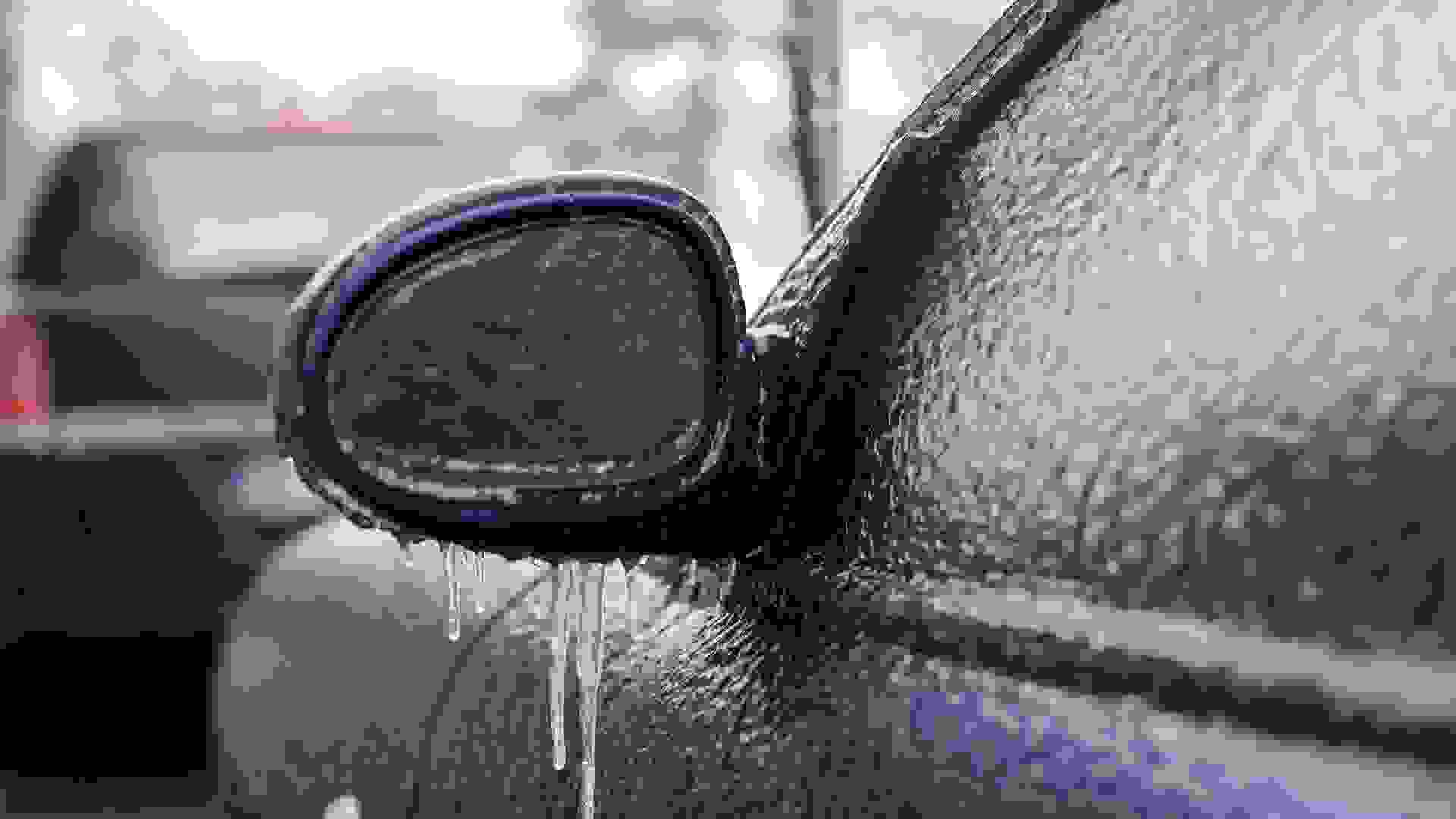Can A Car Dealership Decrease Monthly Payment Due To Repairs
25 Sneaky Machine Dealership Tricks To Avoid at All Costs
Know how to spot unnecessary fees and negotiation tactics.


The Former Bunko Trap
Although it's certainly not unique to the auto manufacture, the bunko scam is i of the oldest tricks in the book. Whether through an ad, an online post or a conversation on the telephone, the dealer promotes a swell deal on a vehicle to lure the client into the showroom. Upon arriving, still, the dealer informs the starry-eyed buyer that the specific automobile from the promotion has just been sold, but a similar model is right there in the dealership for the taking — albeit at a college price.

The Auto in the Picture Doesn't Match the Bargain
Another, more than subtle version of the bait-and-switch trap is advertising that isn't quite false simply is certainly misleading. The dealer will run an ad showing a fully loaded model, but annunciate prices and payments for the base model. When the buyer enters the showroom, they realize the motorcar they saw in the advertisement — with the aluminum blend wheels and booming sound system — costs much more than the price listed in the advert.

The Small-Print Smokescreen
Car ads come with a mistiness of fine print that dealers hope you never read — just you certainly should before you e'er walk into the exhibit. That's because hidden within that minuscule font are disclaimers, stipulations, caveats and atmospheric condition that render the offer moot for many buyers. The fine print is where yous'll notice that financing offers are reserved only for those with the highest credit ratings, that large downwards payments are required or that the offer is only available for those who finance through the dealership.

Dealer Added Options
Sometimes, dealers will advertise a car at a great price, but when the heir-apparent enters the showroom that price is suddenly much college. That's because the advertised car now comes with what's called dealer-added options such as a sunroof or spoiler. These options — which the buyer never asked for — can quickly add together thousands of dollars to the advertised purchase cost.

Folding Options Into Monthly Payments
Fifty-fifty without the trickery of dealer added options, the dealer tin notwithstanding get yous to spend more than than you want for things yous don't need by quoting options as they pertain to monthly payments. In the case of the hypothetical spoiler and the sunroof, for example, you might exist reluctant to become for options like these if you're told they cost $1,700 and $700 actress, respectively. But if the dealer says they'll only run you $28 extra per month, the deal suddenly seems a whole lot sweeter.

Negotiating Based on Monthly Payments
A common tactic is for dealers to ask you upfront how much yous want to spend per calendar month. Never fall into this trap. If you say your upkeep is $400 per month, for example, the dealer tin sell you most whatever car on the lot if they cord the payments out into a long enough loan. Dealerships make their money in the financing department. If they can sell you a car you can't afford by stretching payments out to half-dozen or seven years instead of 5, they get the turn a profit from the sale also as mountains of extra coin in the form of interest y'all pay for a 1 or two dozen extra months. Instead, determine how much you tin afford each calendar month and multiply it past 60 (five years) to find out what you can actually afford, and so shop in that cost range.

How Will Yous Be Paying?
Another mutual strategy is to get the buyer to reveal how they intend to pay for the auto. Here, too, mum'south the word. Since dealers brand their coin in the financing department, showing your hand only works in their favor. If you're paying cash or accept secured third-party financing — both of which are the aforementioned to the dealer — they're likely to jack up the toll of the car to brand up for what they know they won't make on financing your loan. If you reveal that you're seeking financing through the dealership, they might give you a corking bargain on a car considering they know they tin make up for it on the back end. Negotiate the price of the car first and keep financing discussions completely separate.

Marking Upward the Interest Charge per unit
Some other way dealers tin can offer sweet deals upfront and then make up for the loss on the back end is by mark upwards interest rates. Dealers partner with third-party lenders that offering indirect loans that the dealer negotiates on behalf of the heir-apparent. In exchange for setting up the loan, many of those partner banks let dealers to marking upward the interest charge per unit and keep the difference for themselves. If a lender approves a loan with a six% interest rate, for example, the dealer can tell y'all you've been approved at 8% interest and pocket that extra two%. The fix to this is always to get preapproval from your own lender first so you know you walked away with the best deal possible.

What Is Your Bank Offering?
If yous do tell your dealer that you've been preapproved for a loan but are willing to see if the dealer's financing partitioning tin shell that deal, the dealer is about certain to ask what your exterior lender offered. Here, also, keep your cards close to the vest. If the dealer knows you've been approved for a loan with 8% involvement, for example, but finds a lender willing to get to 6% without your knowledge, the dealer tin can offer you 7% or 7.5% instead of really offering you the all-time bargain possible.

Marking Up the Coin Gene
The so-called money factor (abbreviated as MF on invoices) is a number in a decimal form that dealers use to summate the APR of your lease (should you choose to lease, that is). It's a major role of your monthly payment and dealers are known to jack upwardly the coin factor to pad their profits. Most people don't ask to come across it considering they're not aware of it or don't know how to summate it. Ask to see the money factor, so multiply it past 2,400. For example, if the coin gene is .00150, you multiply it past ii,400 to get 3.vi%. If that's college than the prevailing charge per unit, you have room to talk them downwards.

Run across Dealer for Details
One of the more mutual caveats that come with likewise-goodhoped-for-true offers is a bulletin advising buyers to "come across dealer for details." This could include offers like free lifetime oil changes, but the "details" the ad advises you lot to see the dealer well-nigh ofttimes involve a nearly impossible gauntlet of hoops y'all have to jump through to actually cash in. Only by luring you lot to the dealer for details, they've gotten what they wanted in the first place — you strolling into the dealership.

Nonsense Fees
Some fees y'all but can't avoid when buying a automobile, such every bit sales taxes and title and registration fees. You'll also about certainly pay a destination fee, which the manufacturer charges for shipping the car from the mill to the showroom. But there are some common fees you should competition and avoid, even if it means walking abroad at the 11th hour. These include advert fees, loan payment fees and market adjustment fees, all of which are already built into the cost of the car.

Extended Warranties
This one is a personal option that varies from situation to situation, but co-ordinate to Consumer Reports, extended warranties are rarely worth the coin. The concept is to purchase peace of mind by adding warranty protection in instance repairs are needed beyond the life of the standard warranty. Extended warranties, nonetheless, oftentimes price more you'll always spend on repairs and they tend to come with loftier deductibles that brand this kind of protection even less valuable. Consumer Reports instead recommends ownership cars based on their reliability ratings and saving money in a special fund for repairs.

Extended Warranties on Leases
If you're leasing rather than buying a car, don't permit yourself to be talked into an extended warranty nether any circumstance. There are pros and cons to leasing — and 1 of the biggest pros is that y'all're covered by a bumper-to-bumper warranty for the entirety of the lease. By buying an extended warranty, you're literally merely giving coin abroad.

VIN Etching
VIN etching is a theft-prevention method of questionable merit that'southward meant to deter thieves by etching your vehicle identification number (VIN) into the windows of your car. The logic is that they won't be able to make your car anonymous past removing its standard metallic VIN plate on the dashboard and therefore won't steal the car. Kickoff of all, this merely works if the thieves understand this dynamic, are not planning to chop the car and sell information technology for parts or aren't stealing it but to go joyriding. If you do think VIN etching is worth the expense, information technology'due south almost always more than expensive at the dealership than information technology would be at your local auto store. Or, y'all could get a DIY kit on Amazon for around $twenty and handle the job yourself.

Sealants and Other Surface Protections
Another add-on that y'all should never let a dealer talk yous into is paint sealant. Modern cars come factory new with paint that's designed to withstand the elements for the life of the vehicle, which makes sealant easy coin for the dealer and an unnecessary expense for you. The same holds true for things similar rustproofing and fabric protection.

GAP Insurance
Don't let a dealer talk y'all into guaranteed nugget protection (GAP) insurance, which is designed to cover the gap betwixt what your car is worth and what you owe should you total the car and receive an insurance payout that doesn't encompass the remainder of the loan. It's not that GAP insurance is necessarily a bad idea, but information technology'southward almost always cheaper to buy from your ain insurance visitor than through the dealership.

The Yo-Yo Scam
Many dealer tricks might seem shady just aren't against the police. The so-called yo-yo scam, on the other paw, is illegal and is only used by the most unscrupulous of dealers. Co-ordinate to the Federal Trade Commission (FTC), this scam targets buyers who finance their vehicles through the dealership. It works like this: The deal goes through, the paperwork is signed, the buyer goes home with the motorcar and gets used to seeing it in their driveway. So they get a call from the dealer saying that the financing wasn't approved afterward all and that the heir-apparent has to come back and sign a new bargain at a higher interest rate or forfeit the automobile and their downward payment. If you think you lot've been a victim of the yo-yo scam, contact the FTC right away.

Spot Delivery
"Spot delivery" is a term used to depict situations where dealers begin processing loan applications just let buyers drive off with their new cars before the deal is finalized. Some reputable dealers extend this as a courtesy to good customers who bought a car tardily in the mean solar day after banking hours, or during some other fourth dimension when loans are difficult to process. But information technology too tin allow shady dealers to act deceptively and pull a yo-yo scam. Although you might be anxious and excited to bulldoze off with your new auto, politely turn down spot commitment and await until the deal is confirmed earlier driving away.

Depression-Balling Trade-In Value
Dealers stand up to make far more from selling used cars than new ones considering there are several ways they can acquire used cars for much less than they're worth at trade-in. The first manner is simple — just offer much less for the buyer's trade-in car than information technology's actually worth. I reason this works is considering many buyers spend all their time thinking about negotiating the cost of their new cars and tend to consider their trade-ins merely as an afterthought. This incentivizes dealers to commencement with outrageously low offers. In some cases, they'll really get what they asked. If not, the heir-apparent edges them up and upward to a college price and feels like they scored a victory even though they wound up getting far also picayune. Utilize the Kelley Blueish Volume calculator or a similar tool to get a feel for your car's true merchandise-in value before you approach a dealer.

Offering Practiced Trade-In Value With a Catch
Some other common tactic is for the dealer to go the other way and offer you just a piffling bit more than the used car is actually worth at trade-in. This, too, makes the heir-apparent feel like they scored a win and it also instills trust in the dealer. But then the dealer leverages that trust to jack upward the price on the new car you're ownership to make up for the hit they took on the merchandise-in.

Combining the Trade-In With the Buy
The solution to both trade-in traps is to not allow the dealer talk you into combining the trade-in negotiation with the purchase negotiation. Just as with loan terms and buy price, y'all're much better off keeping these two negotiations separate. By doing so, you take away the dealer'south power to short y'all on the trade-in past giving you what appears to be a practiced bargain on the new car. It also prevents the dealer from inflating the price of the buy by offering you good trade-in value.

The Four Square Tactic
Reputable dealers despise the so-called iv-square tactic because it gives the entire industry a black eye and reinforces the sleazy car dealer stereotype. All the same, it's been effectually for decades and dealers continue to apply it today to misfile and bilk customers. The manner information technology works is that the dealer physically draws 4 squares on a piece of paper: i for the vehicle price, one for the trade-in value, one for the down payment and one for the monthly payments. The dealer then strategically shuffles numbers from box to box to make information technology appear that they're giving the buyer a neat deal, when in fact, information technology's a smokescreen designed to confuse and fleece you. If a dealer sits you downward when y'all're ready to shut the deal and draws four squares on a piece of paper, walk away.

Asking For a Down Payment on a Lease
It's never wise to put a downwards payment on a lease and it'southward almost never necessary — although dealers will oft endeavor to become you lot to do just that. One of the main benefits of leasing is that upfront costs are low. A large down payment directly defeats that purpose. If you lot brand a down payment, you lot have to pay taxes on information technology all at in one case. If you full the machine early in the lease, you lose the down payment altogether. If a downwardly payment is required, all you have to do is ask to curl it into the monthly payments. You'll protect yourself against a loss and get to pay whatever required taxes slowly over time.

Talking Buyers Into Leasing
About the Author
Can A Car Dealership Decrease Monthly Payment Due To Repairs,
Source: https://www.gobankingrates.com/saving-money/car/car-dealership-tricks-to-avoid/
Posted by: jacksonentakeeke.blogspot.com


0 Response to "Can A Car Dealership Decrease Monthly Payment Due To Repairs"
Post a Comment